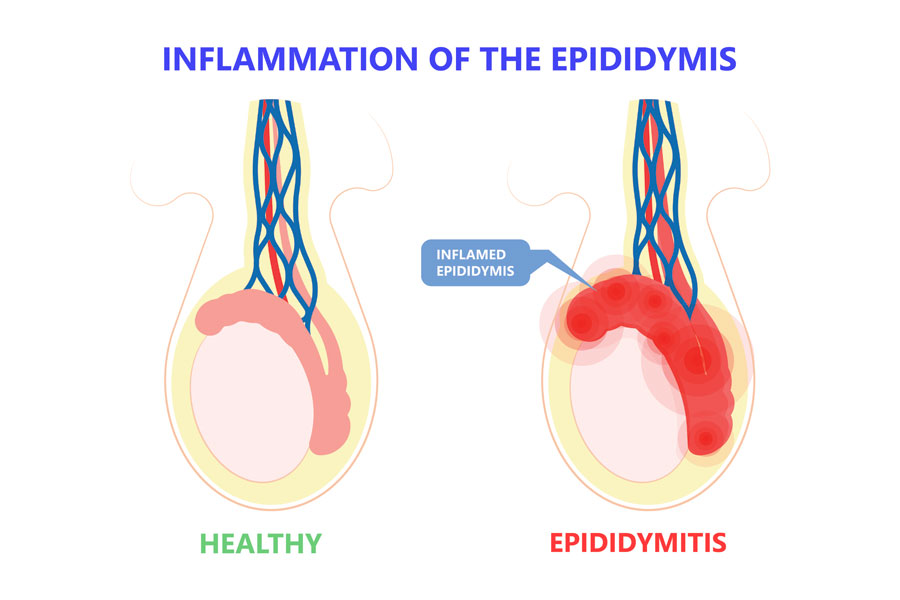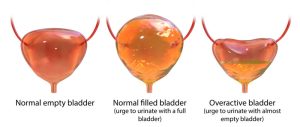When the epididymis, a tiny organ situated next to the testicles, becomes enlarged and inflamed, a medical illness known as inflammation of the epididymis, or epididymitis, occurs. When left untreated, this illness can cause excruciating pain and other consequences. In order to effectively treat and manage this ailment, knowledge of its symptoms and origins is crucial.
Origins of Epididymal Inflammation
Epididymitis is often brought on by a bacterial infection. The urethra connects the urinary system to the penis, making it an entry point for bacteria. Epididymitis can also be brought on by trauma to the region, certain drugs, or STIs like chlamydia or gonorrhea. It is possible that the root of your epididymitis is a mystery.
Inflammation of the epididymis causes these symptoms
Painful swelling and soreness of the epididymis are the hallmark symptoms of epididymitis. Fever, chills, groin discomfort, burning while urinating, and abnormal discharge from the penis are other possible symptoms. If the illness is not treated, complications such as infertility may occur.
Diagnosing Inflammation of the Epididymis
A doctor will usually do a physical exam and prescribe tests like a urine sample or a swab of the region in order to diagnose epididymitis. In order to determine what is causing the inflammation, the doctor may prescribe an ultrasound or other imaging procedures.
Medications for Epididymal Inflammation
Medication alone is rarely effective against epididymitis; thus, treatment usually entails a shift in both diet and hygiene habits. In the event of an underlying bacterial infection, antibiotics may be provided, and anti-inflammatory drugs may be used to alleviate discomfort and swelling. If adhesions or scar tissue are to blame for the irritation, surgery may be required.
Inflammation of the epididymis and its potential complications
Epididymitis can cause several major problems if not managed. Among them are the risks of infection spreading to other organs, such as the kidneys or bladder, as well as the risk of infertility.
Healing of Inflamed Epididymis
Safe sexual behavior, including the use of condoms, is the best protection against contracting epididymitis. Good cleanliness is essential, as is refraining from activities that might aggravate the region, such as riding a bike or a horse.
Future Prospects for Epididymal Inflammation
Epididymitis has varying outcomes depending on the etiology and degree of inflammation. Antibiotics and other drugs usually work well in curing the illness. Nonetheless, surgery may be necessary to remove any adhesions or scar tissue in severe situations.
Epididymal Inflammation: A Prognosis
Medication, changes in lifestyle, and avoiding activities that might cause damage to the region are usually all that is needed to treat and manage epididymitis effectively. Nevertheless, adhesions or scar tissue may need to be surgically removed in rare circumstances. Irreversible infertility is only one of several severe problems that can arise from untreated epididymitis.
Summary
Briefly, epididymitis is an inflammatory disorder of the epididymis, a tiny organ next to the testicles. Depending on the underlying reason, it can result in a wide range of symptoms, the most severe of which are pain and discomfort. This illness is often brought on by a combination of factors, such as a bacterial or viral infection, localized trauma, or the use of certain drugs. Prescribed medicine is often used in conjunction with behavioral therapy to achieve the best results. In order to identify and treat epididymitis, it is crucial to be familiar with the condition’s symptoms and potential triggers.
FAQ
Epididymitis is often brought on by a bacterial infection. The urethra connects the urinary system to the penis, making it an entry point for bacteria. Epididymitis can also be brought on by trauma to the region, certain drugs, or STIs like chlamydia or gonorrhea. It is possible that the root of your epididymitis is a mystery.
A doctor will usually do a physical exam and prescribe tests like a urine sample or a swab of the region in order to diagnose epididymitis. In order to determine what is causing the inflammation, the doctor may prescribe an ultrasound or other imaging procedures.
Medication alone is rarely effective against epididymitis; thus, treatment usually entails a shift in both diet and hygiene habits. In the event of an underlying bacterial infection, antibiotics may be provided, and anti-inflammatory drugs may be used to alleviate discomfort and swelling. If adhesions or scar tissue are to blame for the irritation, surgery may be required.







